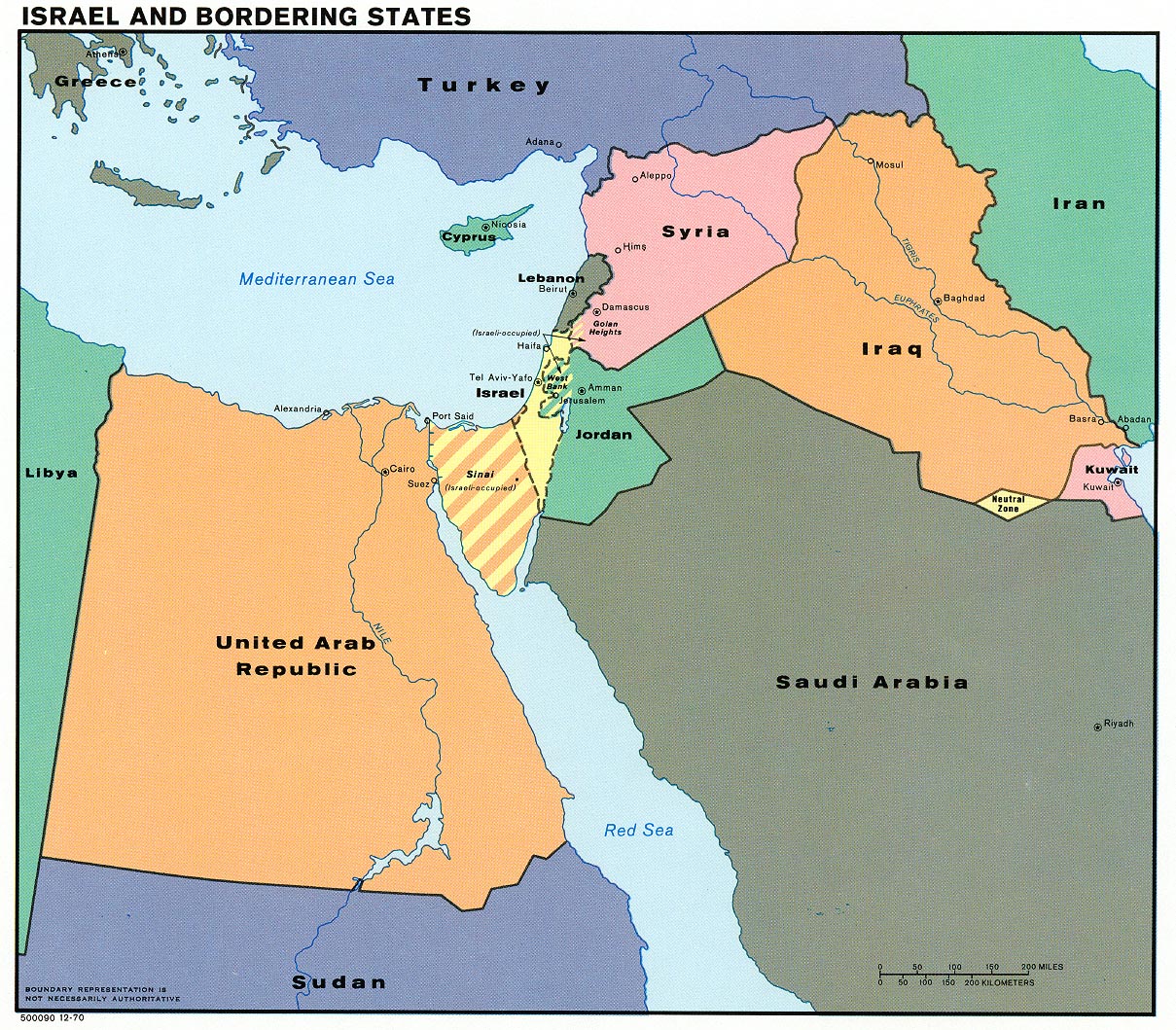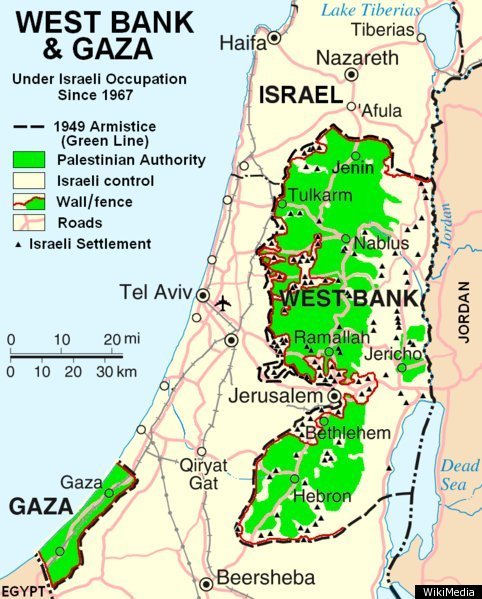A friend and I got to talking about whether we could expect peace between Israel and Palestine. Mitt Romney had trashed the two state solution in a talk that had been put on video and went viral. I am no expert on the topic, but did some thinking and searching. I thought to share what I found on this blog.
 |
| Source: University of Texas Library |
Many of the Palestinian population were displaced by this process. Today the population of the West Bank and Gaza is about 2.6 million, three-quarters of whom are Muslim and 17 percent Jewish (the rest Christian). There is also a Palestinian Diaspera, some living to this day in refugee camps, and many others living in nearby Arab countries.
At Israeli independence, a civil war between Jewish and Palestinian forces escalated into the first Arab-Israeli war in which Jordan, Egypt and Syria combined forces with support from Iraq, Sudan and Saudi Arabia. That war ended in armistices in 1949. That was followed by a war of Israel against Egypt, Jordan, Syria and Iraq in 1967 and a war of Egypt and Syria against Egypt in 1973.
A peace treaty was signed between Israel and Egypt 1979. In 1994 a peace treaty was signed between Jordan and Israel. At the end of the Clinton administration the Israelis withdrew troops from Lebanon. The Lebanese had never attacked across the Blue Line.
There have been a number of steps in pursuit of peace, including those in Madrid, Oslo and Camp David. In 2002, the "quartet" of the United States, the European Union, the United Nations, and Russia outlined the principles of a "road map" for peace, including an independent Palestinian state. The United States, which is recognized as a key participant in the search for peace, has bipartisan support for a two state solution (Romney's campaign staff have affirmed his support in spite of the unfortunate video recently released).
I quote a recent article in The Guardian:
The Palestinian Liberation Organisation, acknowledged as the "sole legitimate representative" of the Palestinian people, recognises the right of Israel "to exist in peace and security". The Palestinian leadership is committed to a negotiated solution and opposes armed struggle. Talks have been in abeyance for the past two years, but many diplomats and observers say Israel's continued settlement growth is the main obstacle rather than Palestinian intransigence.
The official founding charter of Hamas, the Islamist faction that rules the tiny Gaza Strip, still calls for historic (ie pre-1948) Palestine to be liberated. However, its leaders have repeatedly indicated, albeit sometimes opaquely, that they can live with a Palestinian state within 1967 borders, with East Jerusalem as its capital.
According to Wikipedia, "Almost every Israeli prime minister has called for peace talks with moderate Arab leaders over the years."
Surveys have indicated that a majority of the people in Israel and in Palestine favor a two state solution.
Of course, there are many different views among Israelis and among Palestinians about the conflict. IN each case, different parties hold differing views relevant to the peace process. Both the government of Israel and the Palestinian Authority must seek to promote the safety and welfare of their citizens, while dealing with the domestic political pressures, and the pressures of foreign nations. Any negotiation between the two parties would be marked by conflicting interests, not to mention mutual distrust.
Surveys have indicated that a majority of the people in Israel and in Palestine favor a two state solution.
Of course, there are many different views among Israelis and among Palestinians about the conflict. IN each case, different parties hold differing views relevant to the peace process. Both the government of Israel and the Palestinian Authority must seek to promote the safety and welfare of their citizens, while dealing with the domestic political pressures, and the pressures of foreign nations. Any negotiation between the two parties would be marked by conflicting interests, not to mention mutual distrust.
Today, clearly, the situation is complicated by the civil war in Syria and the changes in Arab governments following the Arab Spring.
Still, the long term trend has been towards a peace. The alternatives to a two state solution are hard to imagine, and any serious attempt at a one state solution would draw global condemnation and sanctions on the offending party. It may be that today's leaders are unwilling or unable to negotiate a peace, but leaders change. Indeed, some of the major steps toward peace in the past came from leaders who themselves seemed a priori to be unlikely peacemakers.
Still, the long term trend has been towards a peace. The alternatives to a two state solution are hard to imagine, and any serious attempt at a one state solution would draw global condemnation and sanctions on the offending party. It may be that today's leaders are unwilling or unable to negotiate a peace, but leaders change. Indeed, some of the major steps toward peace in the past came from leaders who themselves seemed a priori to be unlikely peacemakers.
 |
| Source |
No comments:
Post a Comment